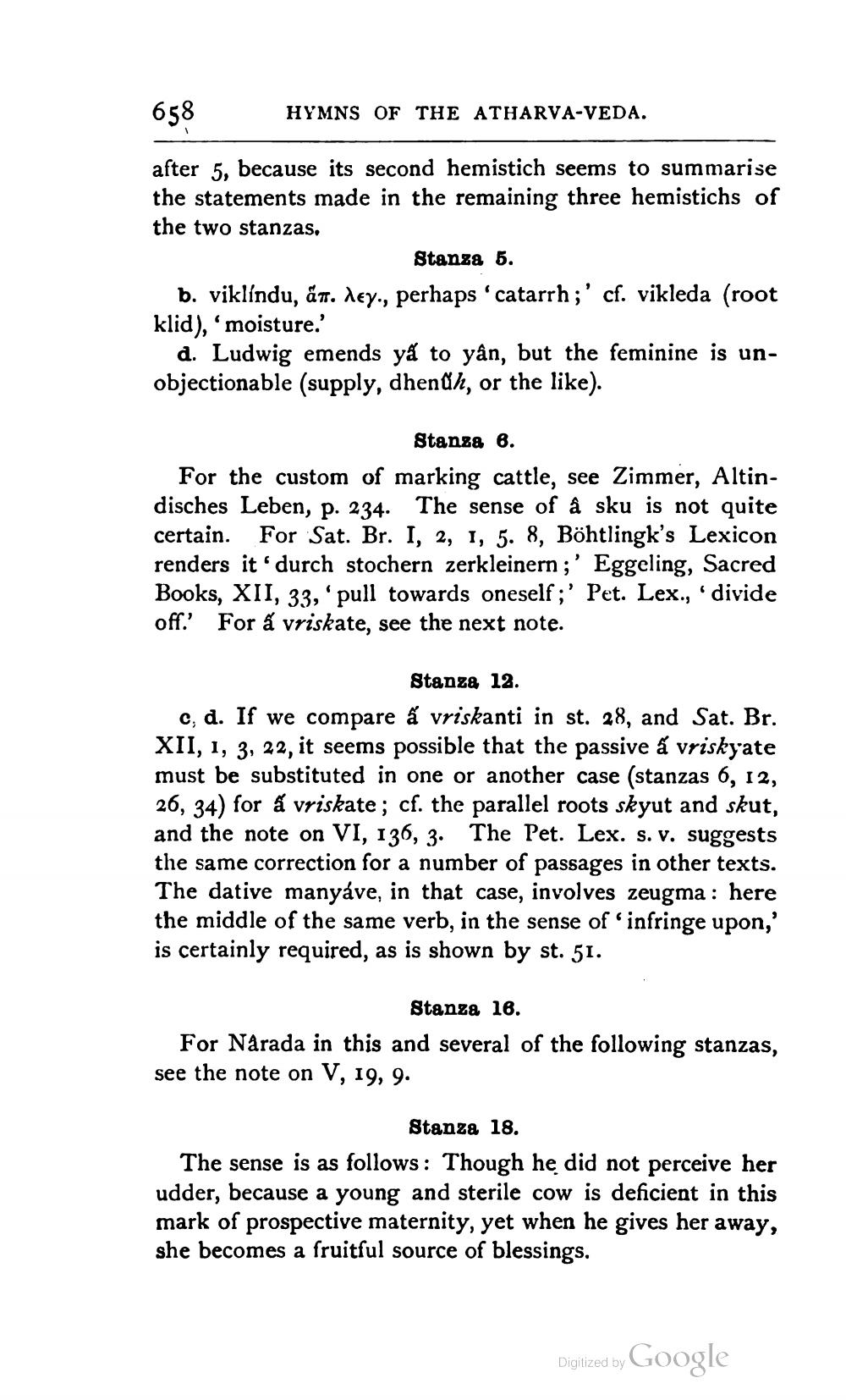________________
658
after 5, because its second hemistich seems to summarise the statements made in the remaining three hemistichs of the two stanzas.
HYMNS OF THE ATHARVA-VEDA.
Stanza 5.
b. viklíndu, år. λey., perhaps 'catarrh;' cf. vikleda (root klid), 'moisture.'
d. Ludwig emends ya to yân, but the feminine is unobjectionable (supply, dhenuh, or the like).
Stanza 6.
For the custom of marking cattle, see Zimmer, Altindisches Leben, p. 234. The sense of â sku is not quite certain. For Sat. Br. I, 2, 1, 5. 8, Böhtlingk's Lexicon renders it 'durch stochern zerkleinern;' Eggeling, Sacred Books, XII, 33, 'pull towards oneself;' Pet. Lex., 'divide off.' For a vriskate, see the next note.
Stanza 12.
c, d. If we compare a vriskanti in st. 28, and Sat. Br. XII, 1, 3, 22, it seems possible that the passive a vriskyate must be substituted in one or another case (stanzas 6, 12, 26, 34) for a vriskate; cf. the parallel roots skyut and skut, and the note on VI, 136, 3. The Pet. Lex. s. v. suggests the same correction for a number of passages in other texts. The dative manyáve, in that case, involves zeugma: here the middle of the same verb, in the sense of 'infringe upon,' is certainly required, as is shown by st. 51.
Stanza 16.
For Narada in this and several of the following stanzas, see the note on V, 19, 9.
Stanza 18.
The sense is as follows: Though he did not perceive her udder, because a young and sterile cow is deficient in this mark of prospective maternity, yet when he gives her away, she becomes a fruitful source of blessings.
Digitized by
Google




